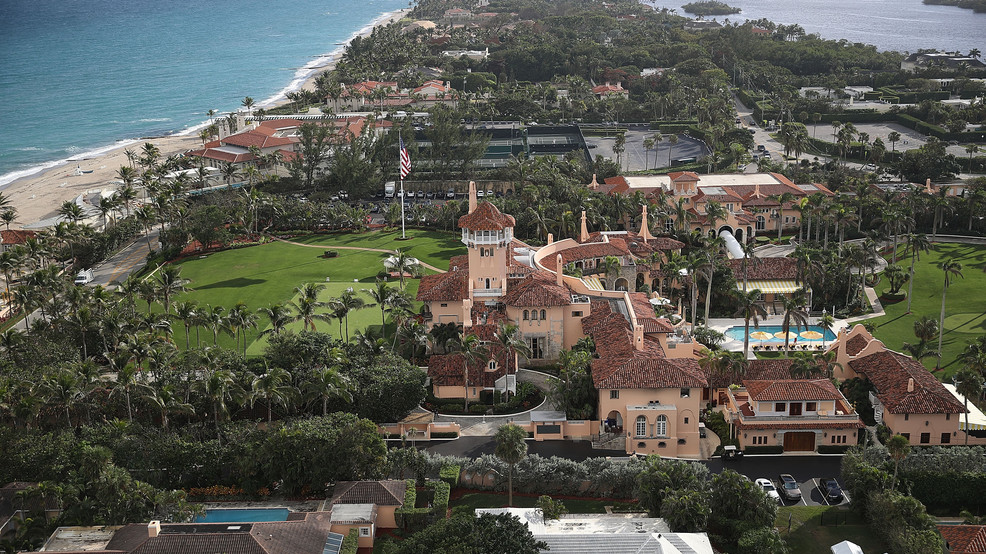Israel’s Intel Failure Is a Stark Reminder Why Trump’s Classified Documents Case Is So Critical to the U.S. And the World
Judge Aileen Cannon issued a ruling in former President Trump’s classified documents case on October 6, pausing the litigation, and delaying a previously set schedule of deadlines leading up to the May 2024 trial date.
On October 7, Israel was caught off guard by a massive attack orchestrated by Hamas, triggering the Israel-Hamas war. A looming question: how could Israel’s powerful intelligence agencies have failed to see the attack coming? Once investigations are underway, one of the logical questions will be whether information about Israel’s vulnerabilities were leaked to Hamas, which helped them prepare the attack.
While there is no evidence that any of the intel in Trump’s classified documents case was connected to the attack, the Israeli intel failure is a stark reminder of just how imperative it is to keep classified documents related to a country’s military capabilities secret. The leaking of top secret intelligence that the U.S. has collected on foreign countries can lead to attacks that result in significant death tolls and trigger wars — and that gets to the very heart of the charges against Trump.
Trump Capitalizing on the “Classified” Documents
Even if the classified documents that Trump kept in his Mar-a-Lago bathroom didn’t reveal Israeli secrets this time, their classified nature meant that they endangered someone’s secrets. And in a bizarre twist, those top secret documents Trump treated so cavalierly and the handling of those sensitive documents are giving his legal team an excuse to delay the trial and avoid accountability.
Judge Aileen Cannon fed into the Trump team’s argument and put the litigation on pause while contemplating how sensitive documents would be handed over during discovery. Trump’s defense team appears to be making the argument that since the government didn’t casually and immediately hand over top secret documents for Trump and his team to review wherever, and whenever they wanted, Trump should get to delay the case.
This seems ironic.
In a case where they are trying to defend Trump’s flagrant failure to keep top secret documents secure, now they claim that the cautious, meticulous method of the government handing over top secret documents should delay the trial.
The government argues that the defense charges are untrue, or in some instances being exaggerated, to try and get their desired delay. The government also acknowledges that there are some complexities, “To be sure, the extreme sensitivity of the special measures documents that Trump illegally retained at Mar-a-Lago presents logistical issues unique to this case.” But they say the protective measures that have delayed them handing over the small subset of extremely classified documents will be resolved within the week, “And whatever delay there has been to date in Trump’s personal review of the classified materials, the seven months that remain before trial is more than ample time for him to do so.”
This didn’t stop the Judge from ruling in Trump’s favor and slow walking the litigation in a way that jeopardizes the May 2024 trial date. Commenting on Judge Cannon’s ruling to pause the case, former federal prosecutor Andrew Weissman said in a recent episode of MSNBC’s “Prosecuting Donald Trump,” “My take is, this is an example of where Judge Cannon, just shows a lack of experience. This is very standard, and the idea that she is getting hung up and delayed on this, is not a good sign. This is relatively routine.”

The Judge’s Pattern of Delays
This is not the first time Judge Cannon has delayed the government’s case. Even before it was officially filed, she temporarily blocked the federal prosecutor’s investigation by restricting them from reviewing roughly 100 classified documents — instead ordering a Special Master to review them first. The decision was overturned in September 2022 with the appeals panel stating, “We conclude that the United States would suffer irreparable harm from the district court’s restrictions on its access to this narrow — and potentially critical-set of materials.”
Shortly thereafter, Cannon made another decision that was once again overturned. This time, the appeals court said she didn’t even have jurisdiction to have made the ruling that impeded the federal prosecutors’ investigation, and dished out another serious rebuke.
In the December 1, 2022, decision, the panel wrote, “The law is clear. We cannot write a rule that allows any subject of a search warrant to block government investigations after the execution of the warrant. Nor can we write a rule that allows only former presidents to do so.”
The delays have continued as recently as this past week. In a court proceeding in front of Judge Cannon on Thursday, October 12, the Judge postponed a hearing to determine if the lawyer for one of the former president’s co-defendants had a conflict of interest admonishing the prosecutors for “wasting the court’s time,” claiming they had presented arguments during Thursday’s hearing that had not been properly raised in earlier court filings. She said she would continue the hearing at a later date but we don’t yet know when that will be.
Jack Smith and his team are clearly indicating that they are ready, willing and able to prove intent — and explain the motive — as to why Trump refused to return the government’s own top secrets. However, the biggest thing standing in their way may be a judge whose rulings indicate that she may be slightly too friendly towards a former president and his requests for delays.
Trump’s Pattern of Spilling Secrets
Trump has always seemed to treat the word “secret” in top secret materials as a personal matter of choice. For over six years, there have been big bright, glowing neon lights and incredibly loud alarms heralding that Trump was going to take national intelligence and broadcast it to whomever he chose.
Back in 2017, Israeli intelligence officials were furious with Trump upon learning that one of his first actions in the White House was to spill secrets that Israel had shared with U.S. intelligence. Trump shared the intelligence with Russian officials in a closed door Oval Office meeting shortly after becoming president.
In addition to Trump having divulged classified information gathered by Israel to the Russians, his various private conversations with Putin seem destined to remain a secret since he confiscated the interpreter’s notes or tore up records. And just what did his chief of staff regularly burn in his White House fireplace, causing his wife to rack up dry-cleaning bills attempting to get rid of the bonfire smell clinging to his suits?
The news of Trump flagrantly revealing our secrets keeps on coming. On Thursday, October 5, 2023, ABC news reported that months after Trump left office, he allegedly discussed classified information about U.S. nuclear submarines with a member of his Mar-a-Lago club — an Australian billionaire — who then allegedly shared the information with others, including foreign officials, his own employees and journalists.
What about when we watched Trump turning the outdoor patio in Mar-a-Lago into a public situation room? On February 11, 2017, Trump’s dinner with Japanese Prime Minister Shinzo Abe had been preceded by news of a North Korean missile launch. As the first course was about to begin, aids brought documents to the table, and in full view of the Mar-a-Lago members, Trump and Abe huddled with then-White House staff members Michael Flynn and Steve Bannon while dinner guests held a bevy of phones to either illuminate the documents for Trump or to photograph the presumably classified documents.
Another recent revelation came when ABC news also reported that a former assistant shared with investigators that Trump repeatedly wrote to-do lists for her on documents from the White House that were marked classified.
Anything that happened after Trump’s presidency should come as no surprise based on the actions we witnessed during his term. After six long years, the question is, whether we can finally stop Trump from revealing all of our secrets.
Why This Case Is a Matter of National Security
As a nation, it is unclear just how long it will take to contain and recover from the damage Trump has done to our national security. However, we can’t even begin to contain Trump’s ongoing threat to national security until we stop the flow of ongoing treasonous acts. To do that, first we have to get to the trial. A goal that Trump is actively working against. Second, we have to get through the trial. These are the only ways to stop him.
Trump’s successful delay in this particular case goes beyond his blatant attempts to keep himself out of jail, but threatens national intelligence and puts us at greater risk from surprise attacks like the one that Israel faced last week.
Trump’s team is using every trick in their book to conveniently delay the trial until after November’s election. And considering the latest decisions in Trump’s favor, allowing him to delay, one has to question whether the federal government can get a fair trial or achieve a fair outcome with this judge in Florida.





